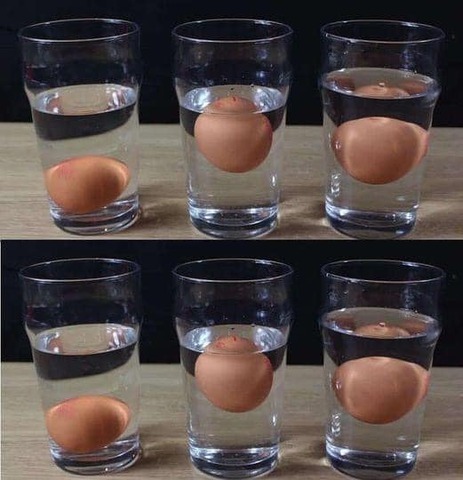ADVERTISEMENT
What the results mean:
- Fresh egg: You won’t hear any sound because the contents are firm.
- Older egg: If you hear a sloshing sound, the egg is no longer fresh.
If you hear a sloshing sound, the egg is likely older and should be checked further for freshness.
3. The Smell Test: Trust Your Nose
If an egg looks fine after conducting the water or shake tests, the next thing to check is its smell. Even if it doesn’t show any obvious signs of being spoiled, a rotten egg will always give itself away with an unpleasant odor.
How to do it:
- Crack the egg into a bowl and take a sniff.
What the results mean:
- Fresh egg: There should be no strong odor, just the typical mild scent of an egg.
- Rotten egg: A rotten egg has a strong, unpleasant sulfur smell, sometimes described as rotten or rotten meat.
If your egg smells bad after cracking it open, it’s time to toss it.
4. The Visual Inspection: Check for Signs of Spoilage
Sometimes, a visual inspection can reveal whether an egg is still good to eat. Fresh eggs have firm, clear egg whites and a bright, round yolk. Over time, eggs will show visible signs of aging.
What to look for:
- Fresh egg: The egg white will be thick and opaque, and the yolk will sit high and firm in the center.
- Older egg: The egg whites may be runny or watery, and the yolk might flatten out and break easily.
- Spoiled egg: You might notice unusual discoloration, such as pink, green, or black spots. If you see any of these, throw the egg away.
5. The Crack Test: Inspect the Shell
The shell can also give you clues about the egg’s condition. While the shell might be cracked naturally over time, it’s important to check it for any unusual appearances or breaks.
What to look for:
- Fresh egg: The shell will be intact with no cracks or unusual marks.
- Older or spoiled egg: Any cracks or an excessively thin shell can indicate that the egg has gone bad or is in the process of spoiling.
Additionally, eggs that have been in storage for a while may develop a thin, fragile shell due to the loss of moisture. If the shell seems compromised in any way, it’s best to discard it.
Bonus Tip: Check the Expiry Date
Most egg cartons come with a “sell by” or expiration date. While this is a useful guideline, eggs can still be good for several weeks after this date. However, if the date has passed, it’s a good idea to perform the above tests before using the eggs.
Conclusion
Knowing how to tell if an egg is fresh or rotten can help you avoid wasting food and prevent potential health risks. Whether you’re using the water test, shake test, or simply trusting your sense of smell, these methods are quick and easy ways to ensure your eggs are fresh and safe to eat. Keep these tips in mind, and you’ll always know if your eggs are still good to go!
ADVERTISEMENT
